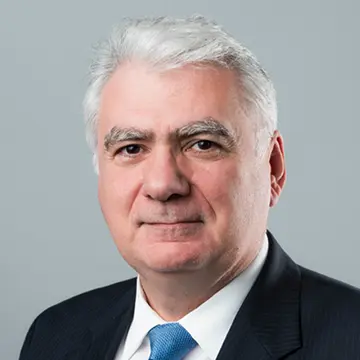The role of central banks in addressing inequality
COVID-19 has exacerbated inequality worldwide. Central banking experts from the U.S., Finland, and Malaysia discuss if and how central banks can help.

Faculty
Athanasios Orphanides is a Professor of the Practice of Global Economics and Management at the MIT Sloan School of Management.
He is also an honorary advisor to the Bank of Japan’s Institute for Monetary and Economic Studies, a member of the Shadow Open Market Committee, a Research Fellow at the Centre for Economic Policy Research, a Senior Fellow at the Center for Financial Studies, a Research Fellow at the Institute for Monetary and Financial Stability, and a Fellow at the European Money and Finance Forum (SUERF).
His research interests are on central banking, finance, and political economy and he has published extensively on these topics.
Before joining MIT Sloan, he held positions at central banks in the United States and in Europe. From May 2007 to May 2012, he served a five-year term as governor of the Central Bank of Cyprus and was a member of the Governing Council of the European Central Bank. Following the creation of the European Systemic Risk Board in 2010, he was elected a member of its first Steering Committee. Earlier, he served as senior advisor at the Board of Governors of the Federal Reserve System, where he had started his professional career as an economist.
Athanasios Orphanides obtained undergraduate degrees in mathematics and economics as well as a PhD in economics from MIT.
Orphanides, Athanasios, Working Paper. August 2025.
Orphanides, Athanasios, Working Paper. June 2025. IMFS Working Paper 220.
Orphanides, Athanasios. Southern Economic Journal Vol. 91, No. 4 (2025): 1420-1439.
Orphanides, Athanasios. In Getting Global Monetary Policy on Track, edited by John B. Taylor, John H. Cochrane, and Michael D. Bordo, 311-326. Stanford: Hoover Institution Press, 2025.
Hofmann, Boris, Marco Jacopo Lombardi, Benoit Mojon, and Athanasios Orphanides. International Journal of Central Banking Vol. 21, No. 3 (2025): 69-110. BIS Working Paper No. 954.
Orphanides, Athanasios. In Fifty Years Of The Shadow Open Market Committee: A Retrospective On Its Role In Monetary Policy, edited by Jeffrey M. Lacker, John B. Taylor, Michael D. Bordo, and Mickey D. Levy, Stanford: Hoover Institution Press, 2025.

COVID-19 has exacerbated inequality worldwide. Central banking experts from the U.S., Finland, and Malaysia discuss if and how central banks can help.

U.S. acting Comptroller of the Currency Brian Brooks predicted a V-shaped recovery but said a second stimulus may still be needed.
Before being tapped for Fed chair, Kevin M. Warsh characterized the A.I. boom as "the most productivity-enhancing wave of our lifetimes — past, present and future." Professor of the practice Athanasios Orphanides noted: "I don't think we are anywhere close yet to having evidence that A.I. has increased potential output significantly. That's why it's tricky to use this argument to say this clearly justifies lower rates today."
Orphanides highlighted the "crazy framework" of the ECB which undermines investor confidence that it stands as a backstop to Eurozone governments
"If you are giving policy advice in real time you have to take into account what are the informational constraints."
Athanasios Orphanides said the ECB made a grave error by restoring its collateral framework after the pandemic.
This eight-week online program offers you the opportunity to explore macroeconomics from a business perspective, guided by renowned economist Professor Roberto Rigobon.